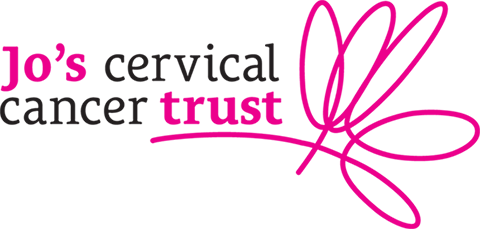Mon, 04/07/2016 - 14:37
Awareness of cervical cancer and prevention is lower amongst women from an ethnic minority background with research showing women may have a different perception and face different barriers to screening than white women. A study by Jo's Cervical Cancer Trust, the only UK charity dedicated to cervical cancer, revealed that BAME women were more likely than white women to say they had never attended a screening (12% vs 8%) and only 28% of BAME women said they would feel comfortable talking to a male GP[1].
When it came to knowledge of the test 30% of Asian women didn't identify that cervical screening is a test to check the cells from the cervix to find pre-cancerous abnormalities. Emotional barriers were also more prominent among this ethnic group[1]. Further research[2] found BAME women did not recognise the term 'cervical screening' or 'smear test'.
The barriers to cervical screening are wide ranging and include emotional (fear, embarrassment, shame), practical (lack of time) as well as many considering themselves to be low risk. Health literacy is also a factor with research showing that 43% of adults (18-65) do not have adequate literacy skills to understand health information[3]. Low health literacy can mean not having the adequate language skills to understand information and lacking knowledge of health topics.
To mark Ethnic Minority Cancer Awareness Month, Jo's Cervical Cancer Trust has translated its popular short film 'Your Guide to Cervical Screening (smear test)' in to eight languages (Arabic, Bengali (Standard), Bengali (Sylheti), Chinese (Mandarin), Hindi, Polish, Tamil, Urdu) to ensure more women can access information to understand the role of cervical screening in preventing cervical cancer. The film has been designed for women to watch on their own or for it to be shown to groups in health care or social settings to increase knowledge and aid decision making with the available languages reflecting different ethnic groups in the UK. The film has been made with input from focus groups of ethnic minority women from across the Midlands as well as a Resource Development Reference Group made up of experts in screening and local community groups. The film features real women from different ethnic backgrounds alongside animation to clearly explain the process and what to expect at screening with translated voiceovers.
Robert Music, Chief Executive of Jo's Cervical Cancer Trust, commented: "It is estimated the cervical screening programme saves 5,000 UK lives every year so it’s vital that women from all backgrounds and ethnicities have the right information and support to access cervical screening. Our research has shown that culture, faith, religion and language barriers can all affect a woman’s ability to access health programmes. We hope this free film is used by healthcare professionals and community groups to reassure those who might be putting it off or to educate those who don’t understand the purpose of the test."
Ends
To find out more about the film https://www.jostrust.org.uk/video-page/dvd-order-form-your-guide-cervical-screening-smear-test
For further information please contact
media@jostrust.org.uk or call 020 7250 8311
Notes to editors
About Jo’s Cervical Cancer Trust
Jo's Cervical Cancer Trust is the UK's only charity dedicated to supporting women and their families affected by cervical cancer and cervical abnormalities. The charity also campaigns to increase awareness of the disease and bring down numbers diagnosed through promoting the cervical screening and HPV vaccination programmes. The charity’s national helpline is on 0808 802 8000.
About cervical cancer and abnormalities
- Around 3 women in the UK die each day from cervical cancer, with someone diagnosed every 3 hours
- Over 300,000 women a year are told they may have a cervical abnormality that could require treatment
- The majority (99.7%) of cervical cancers are caused by persistent human papillomavirus (HPV) infection which causes changes to the cervical cells. Anyone who is sexually active can be infected with HPV at some time
For more information on Ethnic Minority Cancer Awareness Month visit: http://www.cancerequality.co.uk/site/ethnic-minority-cancer-awareness-month-2015/
[1] YouGov Plc. Total sample size was 1179 white women and 1177 BME women aged 20-65. Fieldwork was undertaken between 30 June – 7 July 2011.
[2] Marlow LAV, Waller J, Wardle J. 2015. Barriers to cervical cancer screening among ethnic minority women: a qualitative study. J Fam Plann Reprod Health Care. Accessed online: http://jfprhc.bmj.com/content/early/2015/01/12/jfprhc-2014-101082.full?rss=1
[3] Rowlands G, Protheroe J, Winkley J, Richardson M, Seed PT, Rudd R. 2015. A mismatch between population health literacy and the complexity of health information: an observational study. Br J Gen Pract 65(635).
